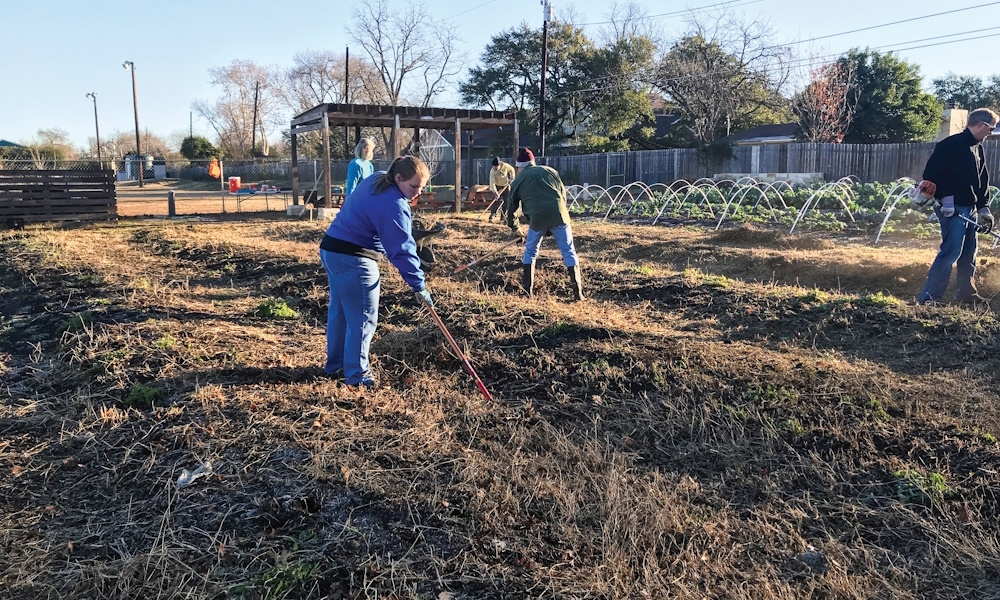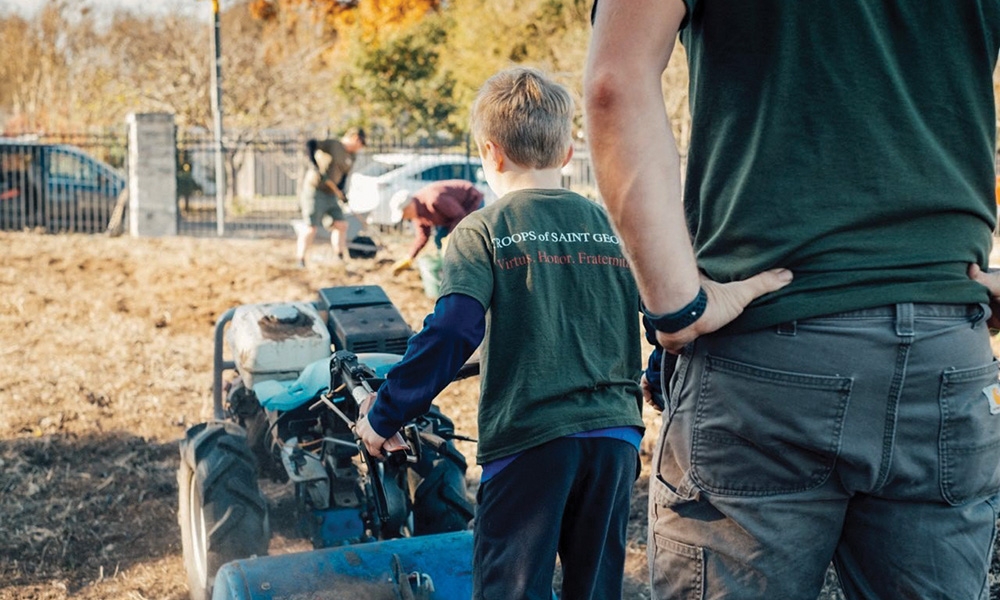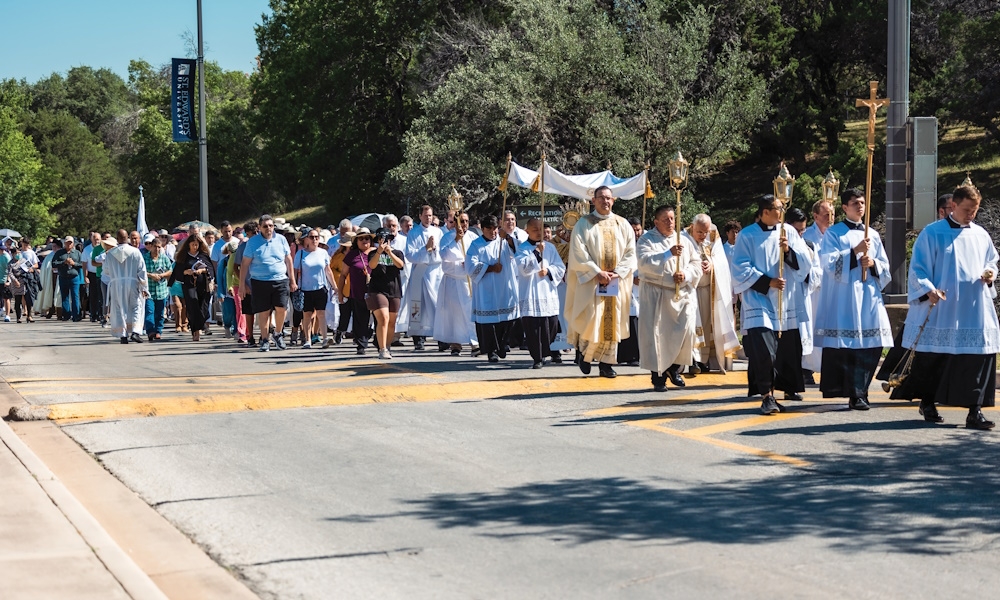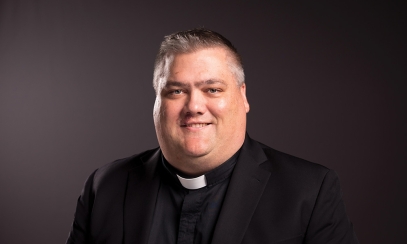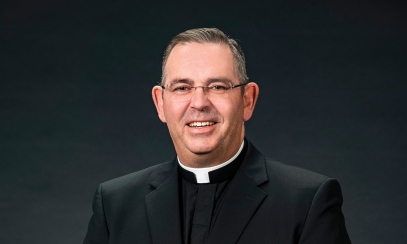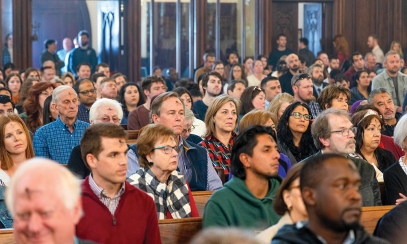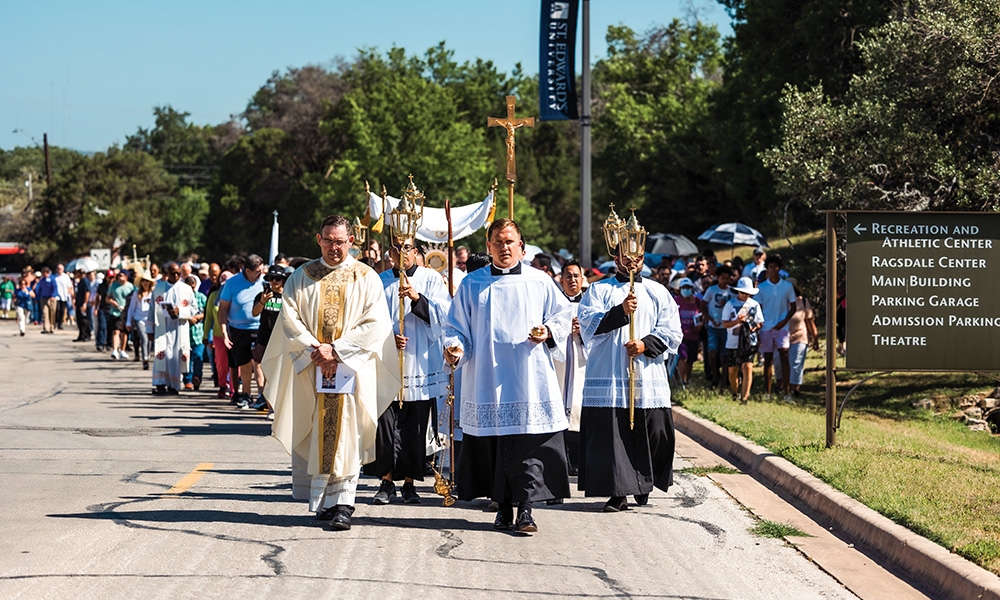
We are one in the Body of Christ
Editor: With this interview, we are wrapping up our series on Catholic social teaching as we discuss solidarity and care for God's creation. Let’s start with solidarity and what it means.
Bishop Vásquez: Solidarity is the belief that God created everything and everyone; therefore, we are all interconnected. Because God has placed me in this world, I have brothers and sisters who I am responsible for. As God’s children, we are one family no matter our racial, ethnic, economic and other differences.
St. Paul writes beautifully to the Corinthians, “As a body is one though it has many parts, and all the parts of the body, though many, are one body, so also Christ. For in one Spirit we were all baptized into one body, whether Jews or Greeks, slaves or free persons, and we were all given to drink of one Spirit.” We have been made in God's image and likeness, and though each of us has different gifts, we are responsible for one another. Together we must work to eliminate poverty, injustice and inequality so that our brothers and sisters develop as God’s children, and we can thrive as the Body of Christ.
Editor: Taking care of God's creation is the last theme of Catholic social teaching. What does this involve?
Bishop Vásquez: At the beginning of his pontificate, Pope Francis wrote Laudato Si’ in which he focuses on care for the environment and the Earth, our common home.
The Holy Father insists that care for the environment and care for God’s people are very closely connected. “A true ecological approach always becomes a social approach; it must integrate questions of justice in debates on the environment, so as to hear both the cry of the Earth and the cry of the poor … Everything is connected. Concern for the environment thus needs to be joined to a sincere love for our fellow human beings and an unwavering commitment to resolving the problems of society.” (Laudato Si’, 49, 91)
God has given us the Earth, a beautiful common home, and he has entrusted us to take good care of it. When creation is abused or mistreated, there are consequences, and people, particularly the poor, suffer. We must take good care of the Earth for future generations. One great example of this is the farm at St. Louis King of France Parish in Austin, where volunteers work in teams to cultivate the land to produce fresh fruits and vegetables. The produce is given to the St. Louis Food Pantry, which distributes food to our brothers and sisters in need. What a blessing to the community!
Editor: How can we implement Catholic social teaching into our daily lives?
Bishop Vásquez: As I have said before, Catholic social teaching is one of the greatest secrets in the Catholic Church. I hope and pray that through these interviews we have made people aware of what the church teaches and believes about humanity, the sanctity of life and our responsibility for one another. We need to teach these values in our Catholic schools and in our religious education classes, and we need to help one another put our faith into action. Catholic social teaching helps us understand the importance of building a society where everyone is respected, cared for and valued.
Also, as we prepare for the upcoming elections, we can use Catholic social teaching to form our consciences. We must study the candidates and the issues, and with the help of these teachings, determine how the candidates align with our faith. Online at faithfulcitizenship.org, we can find more information about our political responsibilities. As you read through the documents, you will recognize many of the same themes that are found in Catholic social teaching.
Editor: What is your prayer for all of us as we form our consciences to vote?
Bishop Vásquez: Gracious Father, your beloved Son taught us to love and serve one another, and through his death and resurrection, he brought us to new life. May the Holy Spirit guide us to work in solidarity for the common good and to continue to protect the dignity of every human life. Please bring us together as a family and keep us united in your love. Amen.
Find more information on Faithful Citizenship online at faithfulcitizenship.org.
Bishop Vásquez is the fifth bishop of the Austin Diocese, which is home to more than 700,000 Catholics. For details, visit the diocesan website at austindiocese.org.

